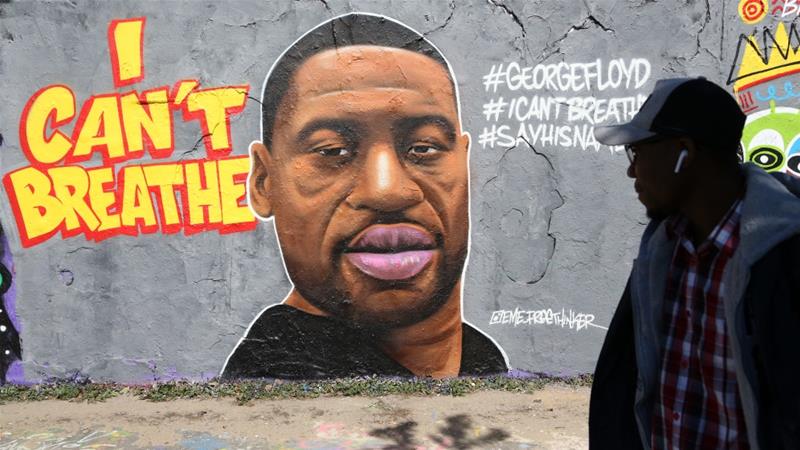I find it difficult to talk about race. I was born of privilege. I come from Scottish, Irish, and English ancestry, with a few Germans or other European ancestors mixed in. My family never owned slaves, as far as I know. I live in a state with a 1% black population. I have 2 black Facebook friends, neither of whom I contact regularly. I am just about as far removed from the plight of my darker skinned brothers and sisters as anyone could be in this country.

So, when something like what happened to George Floyd, Ahmaud Arbery, or Breonna Taylor happens, I say to myself, “Who am I to speak to this? What right as a white, privileged, middle-class male do I have to stand up and say anything about this?” It was at about the time this line of questioning was going through my mind, that I ran across an Instagram post from some famous black American saying, “White people are all posting tick-tock videos while black people mourn.”
I guess I needed someone to give me permission to speak out, so I’m writing this article. But how does one like me speak out? I mean, I have the Latter-day Saints in Action Podcast that I do. I have this forum to write articles on Mormonpress. What else can I possibly do?
I began to search more and more into the lives of my black brothers and sisters. I cried as I read stories, watched videos, and learned. One man shared how he always brings his fluffy dog and his daughter on his walks, for his protection. If he brings them along, people looking out their windows see a loving dad taking his little girl and dog for a walk. If he walks alone, they see a threat and call the police. He could die.
Another video I watched showed an interview of a father and daughter. The girl showed what they practice at home when confronted by police. The daughter raises her hands in the air and says, “I am Ariel Williams. I am 8 years old. I am unarmed and I have nothing that will hurt you.” At one point in the conversation, while her daddy talks about being tazed and thrown to the ground for no reason, she starts crying and gives her dad a hug. The dad responds with love and understanding, “I’m alive. I get to come hug you and tuck you in every night.”
Another video was a black man just talking about his likes and dislikes, “I’m a vegan. I like to watch old musicals. Oklahoma is my favorite.” After telling more and more things about himself, he ends with, “I just wanted you to know me before you called the police.”
My wife’s and my first house was in West Jordan and shortly after we moved in, a black man bought the house next door. He was a former San Diego Chargers football player. We worked together on a few projects around his yard and mine, repairing the fence or digging out a stump. I didn’t think much about it at the time, but one of my neighbors told me, “I saw a black man hanging around your house!”
“Yeah, he’s my neighbor. Really good guy.” I responded. Looking back now I see the neighbor was trying to warn me. Because he’s black, he must be a threat.
Once I watched the videos and took inventory of my own past, I wondered what else I could do? How do I teach my children? How do I retrain my own bias? I found several resources for actionable items. The most comprehensive of which is a list of 75 ideas in this medium article. I read through it. I’m planning on doing several.
After a couple nights of fitful sleep, my wife and I talked through things we could do and decided to donate to Campaign Zero, a group that is working on lasting systemic changes to how police interact with people. Others could donate to the NAACP, Black Lives Matter or any number of other networks providing help to black folks. If you can’t donate, look for other resources to invest time and create connections.
I feel like this past week a light turned on and I could see more clearly. Who will join me in making our world a little safer for our friends and neighbors, safer for our fellow Americans?


Showing 1 reaction
Sign in with